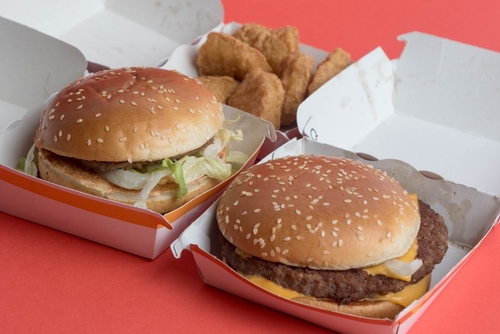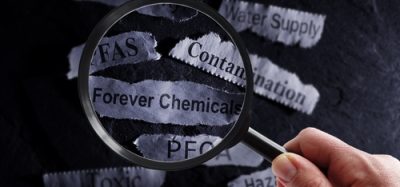Dr Darin Detwiler of Netflix’s ‘Poisoned’ shares his thoughts on McDonald’s 2024 E.Coli outbreak
- Like
- Digg
- Del
- Tumblr
- VKontakte
- Buffer
- Love This
- Odnoklassniki
- Meneame
- Blogger
- Amazon
- Yahoo Mail
- Gmail
- AOL
- Newsvine
- HackerNews
- Evernote
- MySpace
- Mail.ru
- Viadeo
- Line
- Comments
- Yummly
- SMS
- Viber
- Telegram
- Subscribe
- Skype
- Facebook Messenger
- Kakao
- LiveJournal
- Yammer
- Edgar
- Fintel
- Mix
- Instapaper
- Copy Link
Posted: 1 November 2024 | Ian Westcott | No comments yet
In light of the recent E. coli outbreak linked to McDonald’s, food safety expert Dr. Darin Detwiler discusses the implications for global supply chains, consumer trust, and necessary changes in food safety practices.


Onions most likely cause of McDonalds outbreak, says US CDC
McDonald’s E. coli Outbreak Exposes Global Supply Chain Vulnerabilities
Following the development of the McDonald’s E.Coli outbreak New Food Editor Ian Westcott sat down with Dr. Darin Detwiler to learn about the impact of this incident on food safety. Dr. Detwiler, a renowned food safety advisor and educator with over three decades of experience in public health policy, recently featured in Netflix’s Emmy award-winning documentary “Poisoned: The Dirty Truth About Your Food.”
Global Supply Chain Implications
The outbreak, which has resulted in 15 new cases and five hospitalisations, originated from contaminated onions but revealed broader systemic issues. “Clearly, this outbreak underscores vulnerabilities that lie within global supply chains, especially for national food brands,” Dr. Detwiler stated. “It wasn’t just a concern in any one state, or even just within the United States. Until there was a definitive answer in terms of what was the source, there was a lot of scrambling.”
Communication Delays and Brand Protection
The handling of crisis communication drew sharp criticism from food safety experts. “There are those in the food safety community questioning why there was such a delay in talking about this. When you look at how some of the illnesses had started somewhere four to six weeks earlier,” Dr. Detwiler noted. The company’s messaging strategy also raised concerns: “The communication was ‘we think it’s the onions. Just avoid the onions. Just avoid the hamburgers, the specific quarter pounders… but at these restaurants, it’s totally OK to eat everything else.'” He added that this approach missed a crucial point: “The pathogen was brought into those facilities. There was no discussion about the sanitation of those facilities, and it was a bit more of a focus on trying to minimise loss.”
The economic stakes are significant: “We know from prior studies that on average a company like this will see one quarter of stock market decline value… and then it may take up to three quarters of stock market trading for it to get back to its pre-incident value,” Dr. Detwiler explained.
Global Trust and Consumer Confidence
“Trust does not really recognise borders,” Dr. Detwiler emphasised. “When I’m in London and I see McDonald’s, I would assume that it is a brand, their taste, their offerings, their commitment to safety and quality is the same regardless of its location.” In today’s interconnected world, companies must adapt their response times. “The 24-hour news cycle drives a reaction speed and diligence that is unlike what we saw in the past,” Dr. Detwiler noted. While “lawyers and communication teams got in the way,” he stressed that “if you want to build trust with your consumers, work on their speed.”
Future Changes in Food Safety
This incident could catalyse industry-wide changes. “It’s not just McDonald’s that’s going to be talking about this. There’s going to be other similar brands that are talking about this,” Dr. Detwiler explained. He outlined several necessary developments: “This may involve adopting real-time tracking systems, better tracking from farm to fork, blockchain for traceability, enhanced cross-border collaboration, and even recall readiness and smart labelling being a little bit more universal.” Prevention remains critical: “Every time we see a major outbreak or recall like this, you start digging a little deeper and you’ll start to see that red flags were there well before it became an incident in the news.”
Environmental Challenges
Climate change compounds food safety risks. “We’re seeing a lot of different elements here, whether it’s rising temperatures, unpredictable weather patterns, changes in water availability,” Dr. Detwiler explained. “Floods and droughts… have a tendency to introduce contaminants into water sources used for irrigation.”
The Future of Food Transparency
The incident has heightened demands for supply chain transparency. “Consumers want to know not just where their food comes from, but how it’s handled, how it’s monitored for safety, what is the safety value add,” Dr. Detwiler noted. He concluded with a message about investing in food safety: “Don’t do it for the hamburger or the pumpkin. Do it for your brand name. Do it for the legacy of your company. It’s not an investment in the onions. If a company wants to be at this multinational scale, you have to invest in the reputation, the legacy, how consumer trust is not only built, but maintained.”
Related topics
Related organisations
Related regions
Asia Pacific & Oceania, Central and South America, Central and South Asia, Europe, Middle East, North America, UK & Ireland









